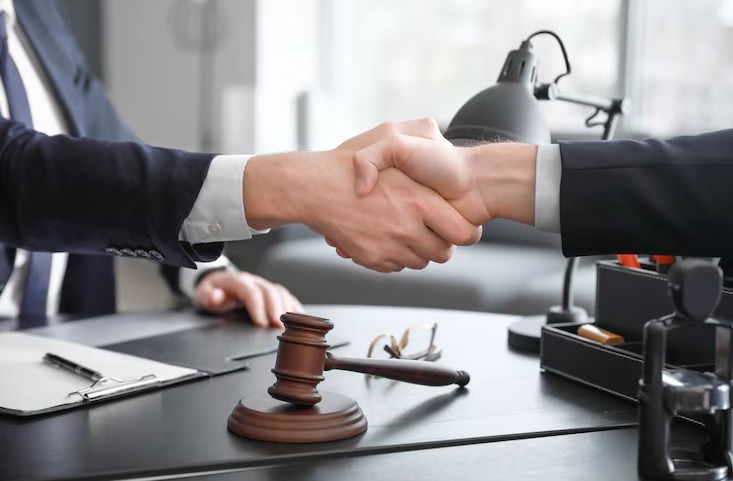How Do Criminal Lawyers Handle Cases Involving Weapons Charges
- vhlegal
- Jan 28, 2025
- 3 min read

Weapons charges are among the most serious offences in the legal system. They often carry lengthy prison sentences, hefty fines, and a permanent criminal record. Whether the charge involves unlawful possession, use, or trafficking of firearms or others, criminal lawyers in Brampton ensure their clients receive a fair trial and the best possible defence. Here's a look at how criminal attorneys handle cases involving weapons charges.
Understanding the Nature of Weapons Charges
Weapons charges can vary widely in scope and severity. Some common types include:
Unlawful Possession:
Carrying a firearm or weapon without the required permits or licenses.
Illegal Use:
Using a weapon in the commission of another crime, such as robbery or assault.
Trafficking and Distribution:
Selling or transporting weapons without proper authorization.
Possession of Prohibited Weapons:
Owning banned weapons that laws prohibit, such as certain types of automatic firearms.
Violations of Storage Laws:
Failing to store firearms safely, leading to potential accidents or misuse.
Each type of charge requires a unique approach. A criminal lawyer's strategy is tailored to the case's specifics.
Assessing the Case and Evidence
A criminal attorney's first step is to thoroughly evaluate the case. This involves:
Reviewing Police Reports:
Exploring how the proof was collected and whether law enforcement followed proper procedures.
Examining Evidence: Scrutinizing the weapon itself, fingerprints, or surveillance footage.
Identifying Procedural Errors:
Checking for violations of the client's constitutional rights, such as unlawful searches or seizures.
Understanding the Charges:
Clarifying the specific charges and potential penalties may differ depending on the jurisdiction and circumstances.
Developing a Defense Strategy
A criminal attorney's role is to build a robust defence strategy tailored to the facts of the case. Common defence approaches include:
Challenging the Legality of the Search and Seizure:
If the weapon was obtained through an illegal search, the attorney could file a motion to suppress the evidence. Thus, potentially leading to a dismissal of the charges.
Questioning Ownership or Possession:
In some cases, the accused may argue that the weapon did not belong to them or that they were unaware of its presence.
Self-defence:
If the weapon was used to protect oneself or others from imminent harm, the lawyer may justify self-defence.
Examining Intent:
Some charges, such as trafficking, require proof of intent. Criminal lawyers may work to show that the client's actions did not meet the legal threshold for intent.
Negotiating Plea Bargains:
In cases where the evidence is strong, the lawyer may negotiate with prosecutors for reduced charges or lighter sentences in exchange for a guilty plea.
Protecting Constitutional Rights
A key responsibility of criminal lawyers is safeguarding the accused's constitutional rights. This includes:
Ensuring Due Process:
Verifying that the client is treated fairly throughout the legal process.
Protecting Against Self-Incrimination:
Advising the client on their right to remain silent and avoid making statements that could be used against them.
Advocating for Bail:
Arguing for reasonable bail terms to secure the client's release while awaiting trial.
Navigating Complex Laws and Regulations
Weapons laws can be highly complex, involving federal, state, and local regulations. Skilled criminal lawyers understand the intricacies of these laws and how they apply to the case. For example, federal firearms charges often carry mandatory minimum sentences. Thus, making it crucial to address such charges with precision and expertise.
Working with Experts
Criminal lawyers collaborate with experts to strengthen the defence in many weapons cases. These experts may include:
Ballistics Specialists:
To investigate firearms and determine whether they were used as alleged.
Forensic Analysts:
To study fingerprints, DNA, or other physical evidence.
Mental Health Professionals:
To provide context for the client's actions, particularly in emotional or psychological distress cases.
Guiding Clients Through the Legal Process
Facing weapons charges can be overwhelming, and a criminal lawyer's role extends beyond legal representation. They provide emotional support and help clients understand their options. The legal experts also ensure they are prepared for each stage, from arraignment to trial.
Seeking Alternative Resolutions
Criminal lawyers explore alternative resolutions to help clients avoid the most severe consequences when possible. These may include:
Diversion Programs:
Participation in educational or rehabilitation programs may result in charges being dropped for first-time offenders.
Probation:
Negotiating for probation instead of incarceration. It is often coupled with community service or counselling.
Conclusion
Weapons charges are serious and carry life-altering consequences. A criminal lawyer's role is to provide a vigorous defence, protect their client's rights, and navigate the complexities of the legal system. By carefully evaluating the case, building a strong defence, and exploring alternative resolutions, they work to achieve the best possible outcome for their clients. For anyone facing weapons charges, having an experienced and dedicated criminal lawyer is essential to ensuring justice and protecting their future.






Comments